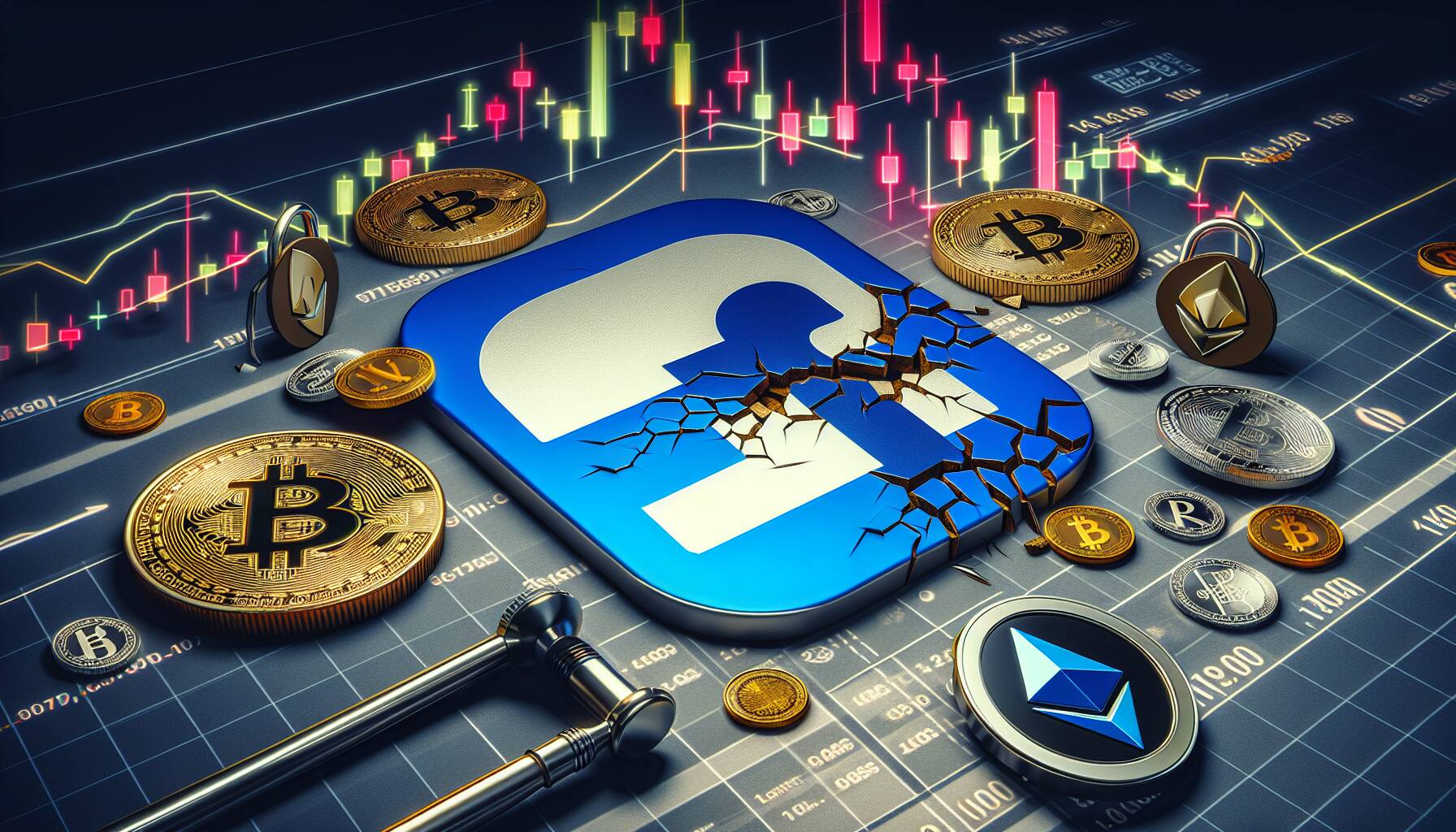A recent incident in the world of cryptocurrency has captured headlines, as a 26-year-old man from Alabama has been sentenced to over a year in prison for his involvement in a significant social media hack. Eric Council Jr., from Huntsville, pleaded guilty to participating in a deceptive scheme that led to a temporary surge in the price of bitcoin (BTC), highlighting the vulnerabilities within financial communications and the potential for digital manipulation.
According to a press release from the U.S. Department of Justice, Council executed a SIM swap attack to hijack a phone number linked to the U.S. Securities and Exchange Commission’s (SEC) X account. Posing as a telecom customer with false identification, he and his accomplices took advantage of this unauthorized access to disseminate false information, claiming that the SEC had approved spot bitcoin exchange-traded funds (ETFs). This misleading claim sent bitcoin’s price skyrocketing by over $1,000 within minutes, only to plummet more than $2,000 shortly after the post was exposed as a hoax.
“The deliberate takeover of a federal agency’s official communications platform was a calculated criminal act meant to deceive the public and manipulate financial markets,” said Acting FBI Assistant Director Darren Cox.
This event underscores the importance of robust security measures within digital platforms, as well as the significant impact that misinformation can have on the cryptocurrency markets. Federal authorities characterized the attack as a calculated attempt to manipulate financial conditions, aiming to exploit public trust in established financial systems. In addition to his prison sentence of 14 months, Council will also undergo three years of supervised release, serving as a reminder of the legal consequences tied to cybersecurity breaches in the financial sector.
While the SEC did approve the launch of spot bitcoin ETFs later that month, the repercussions of this hack serve as a cautionary tale about the intersection of digital assets and market integrity. As cryptocurrencies continue to gain mainstream attention, the actions of individuals like Council could have far-reaching effects on public perception and regulatory responses in the ever-evolving financial landscape.

Social Media Hack Impacts Bitcoin Market
This incident highlights the vulnerabilities in digital communications and the potential consequences of cybercrime, particularly on financial markets and individual investors.
- Involvement of Eric Council Jr.
- A 26-year-old from Huntsville, Alabama.
- Pleaded guilty to charges related to a social media hack involving the SEC’s X account.
- SIM-Swap Technique
- Council used this method to gain unauthorized access to a phone number linked to the SEC.
- This reflects significant security vulnerabilities related to telecom services.
- Market Manipulation
- The hack resulted in a false announcement about the approval of spot bitcoin ETFs.
- Bitcoin’s price surged by over $1,000 after the false post but then crashed by more than $2,000.
- This could impact individual investors, highlighting the risks of trading based on unverified information.
- Consequences of the Hack
- Council was sentenced to 14 months in prison with an additional three years of supervised release.
- This serves as a deterrent against similar attempts to manipulate financial markets.
- Broader Implications for Trust in Financial Systems
- Authorities emphasized the attack aimed to erode public trust in official communications.
- Individuals must remain vigilant about the authenticity of financial news, particularly in the volatile cryptocurrency market.
Impact of Social Media Hacks on Cryptocurrency Markets: A Case Study
The recent sentencing of Eric Council Jr. highlights a troubling trend in the intersection of social media security and cryptocurrency valuations. By exploiting a vulnerability in U.S. regulatory communications, Council’s actions momentarily sent bitcoin’s price into a frenzy, demonstrating how easily misinformation can destabilize markets. This incident is not isolated, as similar hacks have been noted in recent months, raising significant concerns for investors and regulatory bodies alike.
Comparative Advantages and Disadvantages
One pivotal advantage that Council’s case exposes is the susceptibility of cryptocurrency markets to external manipulations. While traditional stocks are usually less reactive to false information due to regulatory safeguards, cryptocurrencies often lack these protective measures. The significant price volatility witnessed in response to the SEC hoax is emblematic of a broader issue—digital currencies can experience pronounced fluctuations based solely on news events, whether substantiated or not. Investors who are sensitive to market sentiment may feel anxious and vulnerable, leading them to make hasty decisions.
On the flip side, this case underscores the increasing sophistication of cybersecurity measures that regulatory agencies are likely to implement post-incident. The SEC’s eventual approval of spot bitcoin ETFs might indicate that, despite the temporary manipulation, there is a growing acceptance of cryptocurrencies in mainstream finance. This could ultimately benefit legitimate investors by fostering a more robust and secure trading environment in the long run. However, the public’s trust in cryptocurrency markets is at risk, potentially discouraging new investors and stalling institutional adoption.
Who Stands to Gain or Lose?
Retail investors looking to enter the cryptocurrency space may find themselves caught in a precarious situation. While those with an established understanding of market dynamics might thrive, newcomers could fall victim to fear-based selling due to heightened anxiety about market regulations and cyber threats. Blockchain enthusiasts and developers could see this incident as a call to strengthen security protocols amid growing scrutiny from regulators, but they may also face challenges in gaining governmental support for innovative projects.
Moreover, for regulatory bodies like the SEC, this incident presents a dual challenge. They must strengthen their cybersecurity measures to prevent future breaches while simultaneously fostering a healthy marketplace that encourages innovation and growth in the digital currency sector. Balancing security with progress will be essential to maintaining both investor confidence and regulatory integrity.















